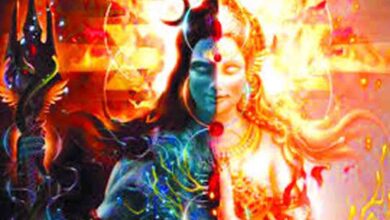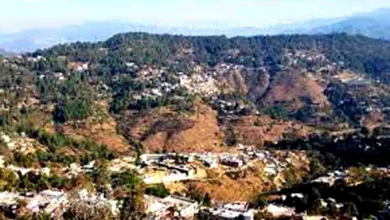West Bengal politics is at a crucial stage

USUAL SUSPECTS
Unlike some Western democracies where the attachment to political parties tend to be lifelong, there is considerable fluidity in political affiliations for activists. This is partly because — with the exception of the Congress, the BJP, Communists and a handful of regional parties — the party system in India is still evolving and is disproportionately dependent on individuals. Additionally, since politics is all about the quest for power and influence — and I don’t mean this in a pejorative way — individuals see political parties as vehicles for the fulfilment of their goals. Consequently, the political eclipse of any political party invariably sees a movement of people between parties. Today, to take an example, the erstwhile followers of Ram Manohar Lohia are to be found in nearly all the political parties. That is because the Indian socialists have a terrible record of creating and nurturing political parties.
Impending elections are normally the occasion for activists to switch loyalties. Such defections are also regarded as barometers of public opinion, since local leaders with an eye on their own political futures tend to try and move to the side most likely to win. In January 1977, it was the defection of Jagjivan Ram, HN Bahuguna and Nandini Sathpaty from the Congress that triggered apolitical avalanche which culminated in the political defeat of Indira Gandhi.
It is difficult at this stage to anticipate the likely impact of the resignation of Suvendu Adhikari from the Mamata Banerjee Government in West Bengal. The resignation was preceded by months of strained relationship centred on the role of the Chief Minister’s nephew Abhishek Banerjee in the political dispensation. Adhikari, along with other old-time associates of the Trinamool Congress chief, have resented to growing power of Abhishek and his attempts to undermine them. Mukul Roy, once the de-facto number two man in the TMC, left and joined the BJP in 2017. Now Adhikari, who enjoys considerable influence in the two districts of Midnapur, has joined the ranks. Although he is still nominally in the TMC, it is only a matter of time before he leaves the party along with others. They seem likely to join the BJP before too long.
Over the past 18 months, but mainly in the aftermath of the 2019 general election when it surprised everyone by winning 18 of the State’s 42 Lok Sabha seats and winning 40 per cent of the popular vote, the BJP has emerged as the foremost challenger to the TMC in West Bengal. The BJP, once a bit player in the State with no real presence in local politics, has succeeded in eclipsing the Left and the Congress. In the 2019 general election, the Left vote was squeezed considerably, with the lion’s share of it going to the BJP.
There are still many problems that the BJP has to overcome if it is to upstage the TMC in next summer’s Assembly election. The most important of these is to ensure that the 40 per cent support it received in 2019 is not only intact but supplemented by additional votes. This is a challenging prospect because regional parties such as the TMC tend to perform better in Assembly elections than in elections to the Lok Sabha. The Left, which performed disastrously in 2019 and failed to win any Lok Sabha seats from the State — the first occasion since 1952 — is also hopeful that its alliance with the Congress will add to their kitty in the Assembly poll. In such a situation, the BJP — apart from holding its own — has two options.
First, it needs to chip away at the TMC’s existing voter base. In 2019, the BJP failed to make deep inroads in East Midnapur district, the bastion of the Adhikari family. The members of the Adhikari family won their seats in Tamluk and Contai. Additionally, the TMC won the Ghatal seat. If the Adhikaris shift their loyalty to the BJP, the saffron party will be better placed to consolidate its hold all along the perimeter of West Bengal. If Suvendu Adhikari needs the BJP to demonstrate his political relevance in the State, the BJP needs to prevail all over East and West Midnapore to add to its pre-existing strength. Those in the BJP who believe that defectors from other parties should be discouraged because the party is well placed to win on its existing strength are clearly being unrealistic. There are important gaps in support the BJP must fill — the urban cluster around Kolkata being important examples — if it hopes to form a Government in 2021 in Kolkata.
Secondly, for the BJP, the impression that the TMC is crumbling under the weight of its own contradictions is important. In any election there is a bandwagon effect whereby undecided and wavering voters swing to the party that seems to have the clear edge. In West Bengal the Muslim community — whose voter strength is anywhere between 27 and 30 per cent — plays a crucial role. This section has been outside the reach of the BJP and it forms the bulwark of support for the TMC, except in three districts where the Congress has influence. In the event it seems Mamata is crumbling, there will be a temptation on the part of Muslim voters to either swing to the Left-Congress alliance or support those Muslim parties that are campaigning aggressively to give Muslims an independent voice. Alternatively, sensing the BJP threat, the Muslim community may choose to back the TMC as a solid bloc. However, even positing non-TMC options before Muslim voters will become difficult if the perception battle favours the incumbent.
These are the reasons why the next few acts in the Suvendu Adhikari drama need to be closely observed. West Bengal politics is at a very crucial phase.
Sunday, 29 November 2020 | Swapan Dasgupta






